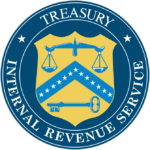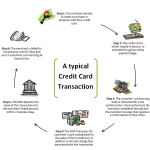
Tax IDs and TIN Mismatch





This pricing model works by adding a constant margin onto the underlying interchange-rate. It’s widely considered the fairest model in the industry.

A merchant account is a business account with a bank, that allows a business or non-profit organization to accept credit card payments in exchange for their product or service.


Voiding “cancels” a sale, whereas a refund is a separate, offsetting negative sale. If possible, it’s always better to void than refund.

Chip+PIN is the “strongest” encryption method since it’s much harder to steal a PIN than fake a signature. Currently, most US banks issue Chip+Signature cards. As time moves on, they’ll migrate towards Chip+PIN.

Factoring is accepting credit card payments on behalf of another business. It’s prohibited, since factoring can hide money laundering and illegal activities

Address Verification is a very important step in any card-not-present sale. Whenever you accept a card without physically seeing the card, you inherently run a much higher risk of accepting a fraudulent card. As a merchant, you want to do everything in your power to reduce that risk. There are no guarantees, but using the […]